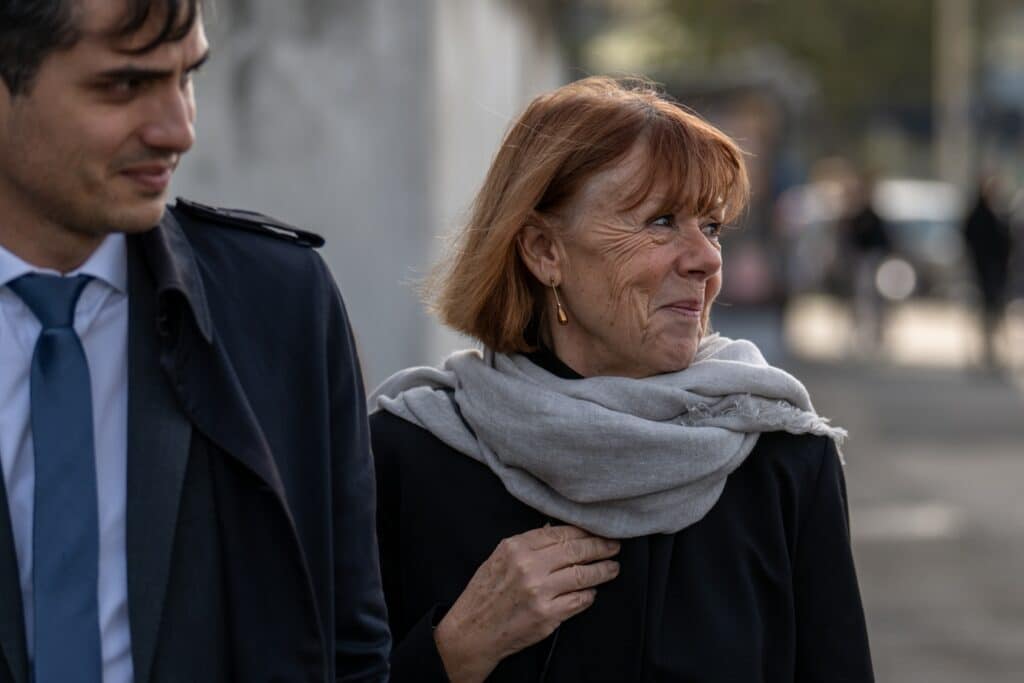When I read about Gisele Pelicot, I felt something I hadn’t felt in years: pride. Pride that a victim of sexual violence was celebrated, not shamed. That her country saw her bravery and said thank you.
In France, Pelicot’s courage was met with applause – literally. In court, people stood to honour her. Her government awarded her a knighthood. She had a lawyer by her side at every step, not as a privilege, but as a right. The air shifted toward compassion for her and accountability for the systems she exposed. It was a national reckoning that said: we believe you, and we’re grateful you spoke out.
In Australia, the air still feels heavy with disbelief. Something similar could have unfolded when Brittany Higgins spoke truth to power about being raped inside Parliament House. But instead of honouring her courage and confronting the culture that allowed it, it was Brittany who faced a national interrogation.
The system that punishes victims
Justice here isn’t just slow; it’s punishing. Each step of the process, the fragmented police visits, the administrative delays, the sanctioned dissection of victims’ private records, the courtroom interrogation, becomes a gauntlet. It tests not what was done to victims, but how much humiliation they can withstand.
When my case collapsed, it didn’t feel like a technicality. It felt like confirmation that I had done everything right, and it still wasn’t enough. That there’s no “right” way to survive, only a thousand ways to be disbelieved.
The data tells the same story. Only 8 per cent of rapes in Australia are ever reported. Of those, fewer than one in ten end in conviction. One in three victims never tells anyone at all, silenced by shame or fear of being blamed. We call that stigma, but it’s deeper than that: it’s rape culture.
Because our culture still sees sexual violence as a private tragedy, not a public failure. It still teaches women that speaking up will ruin their lives more than it will change them.
A tale of two countries
In France, Pelicot’s name became shorthand for courage. The trial was (incorrectly) dubbed the Pelicot trial, but not to shift blame, to honour her bravery in exposing systemic rot. She was treated as an agent of change, not an inconvenience.
In Australia, when people called the trial of Brittany Higgins’ rapist Bruce Lehrmann “the Higgins trial,” they meant it literally: Brittany was the one on trial. A simple Google search reveals the headlines – rarely about the crime itself, but about her clothes, her pay, her politics, her “motives.”
Where France examined the brutality of the offence, Australia examined the woman. France turned a victim into a symbol of courage. Australia turned one into clickbait.

Justice as culture
What separates France and Australia isn’t limited to legal frameworks; it reflects a cultural reckoning. It’s what happens when one country decides that believing victims is part of its civic identity, and another still treats belief as a political liability.
In France, victims have legal representation of their own – someone to guard their dignity, their privacy, their rights. In Australia, victims are not legally represented in the case against their own perpetrators. The harm is framed as an offence against the state, not the person who endured it. And that distinction changes everything. It turns victims into evidence, not participants.
In the eyes of the law they are witnesses to crimes committed against their own bodies, their pain useful only insofar as it aids the prosecution. Outside the courtroom, the sidelining continues. They are dismissed rather than recognised as courageous, treated as inconveniences rather than recognised for the public health assets they are – speaking out so the state can pursue justice. Here, coming forward is rewarded not with belief or protection, but with burnout.
Why this moment matters
The French decision to increase the sentence for one of Pelicot’s rapists upon appeal wasn’t about punishment; it was about recognition. About saying a woman’s pain is a matter of national conscience, not personal misfortune.
Imagine if Australia took that message seriously, if we treated sexual violence as a systemic failure rather than a PR issue.
Because justice here still depends on how much you can endure. On whether you can survive the reporting process, the trial, and the backlash. On whether you have the stamina to keep showing up in a system built to wear you down. That’s not justice. That’s endurance theatre.
Every time a case collapses, the message to victims is clear: don’t bother. Every time the headlines mock or misrepresent a victim, the silence deepens. And every time we fail to reform how this system works, from policing to prosecution to press, we reaffirm that silence is safer than speaking out.
Toward something better
It doesn’t have to stay this way. Justice isn’t fixed; it’s made. And it’s remade every time we decide who deserves protection, and who deserves to be punished for seeking it.
France has shown what cultural transformation can look like: applause, not accusation. Admiration, not annihilation.
In Australia, I’d like to believe we’re at the beginning of that shift. The upcoming trials of Independent Legal Representation (ILR) for sexual violence victims, scheduled to roll out across every state and territory from 2026, are a start. They’ll give victims a lawyer of their own, someone to protect their rights, their privacy, and their dignity, as Gisele Pelicot had in France.
But cultural change? That can’t be legislated. It has to be lived. It begins with how we speak about victims, how we frame their courage, how we choose to believe them before the verdict.
When Gisele Pelicot walked out of court to applause, she carried every victim who never got that moment of recognition. I felt it, even from here. Australia can feel it too – if we choose to.


